Coronavirus Update: What We Know So Far
Before I get into the Coronavirus update, I would like to first say, I do not want you to panic or be fearful. This post is not to spread fear, but to update you on what is going on, what we know, and how to be prepared for anything that could happen. Please refer to the CDC for accurate information on COVID-19.
Additionally, it is important to keep in mind that there have been numerous epidemics and pandemics in the last 10 years. Most have survived it, and it has passed. Here are just a few we have survived:
- HIV/AIDS Pandemic: 2005-2012
- Flu Pandemic in India: 2009
- Swine Flu: 2015
- Congo Yellow Fever: 2016
- Madagascar Measles: 2018
Pandemic or Epidemic
Pandemics and epidemics are two different things. It is important to know the difference so that you know what you are up against.
Pandemic
A pandemic is when infection or disease spreads across a wide geographical area, such as multiple countries. It affects many people. It spreads across national borders and possibly worldwide. If an infection becomes widespread in several countries at the same time, it can become a pandemic.
Pandemics are typically caused by a new virus strain that is easily transmitted between humans. In this case, humans have no immunity against the new virus. Basically, it has not circulated around people before.
A pandemic affects more people and can be more deadly than an epidemic. Additionally, it can lead to social disruption, economic loss, and general hardship.
Epidemic
An epidemic, on the other hand, doesn’t spread beyond national borders. It is specific to one city, region or country. We have an epidemic when the number of people who get an infection is higher than the number expected within a region or country.
Coronavirus Update
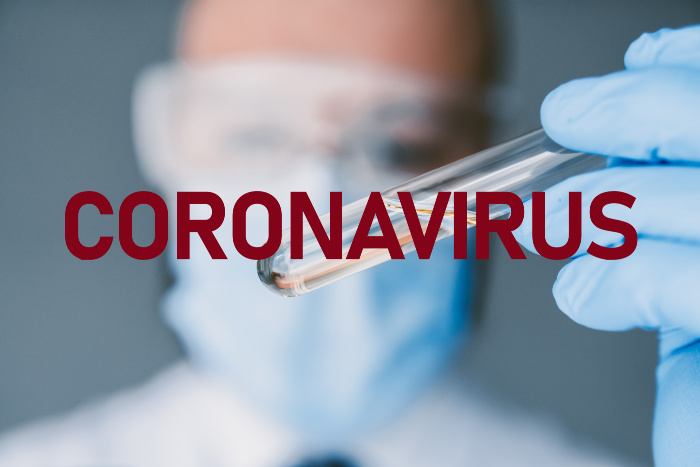
I have spoken to a friend who works with the CDC. She works to combat epidemics and pandemics by coming up with solutions, such as quarantine facilities and ways to stop the spread of infection.
She has given me some updated information that she currently knows, and she has verified some of the information that has been going around, particularly in the media. She does not want to be quoted and was just giving this as general information to help our readers to better prepare. She encouraged us to remind people to not panic and keep calm.
Here is what I know:
Coronavirus Update: What is the Coronavirus?
According to the CDC, Coronaviruses have been around for quite some time; however, the one that is currently going around is a new mutated form of the virus. This coronavirus is NOT the same as the coronaviruses that have circulated with humans in the past. This virus was first identified as the Wuhan virus. However, the official name of this coronavirus is Coronavirus disease 2019 or COVID-19.
With this being said, they don’t know much about this new strain. They suspect it may have come from animals, but are unsure. They do not have a cure for it, they do not have a vaccine, and they are unsure of everything that could happen with the virus.
Coronavirus Symptoms
The coronavirus mimics the flu. However, it is NOT the flu. It is not in the same class of virus as the flu and cannot be treated in the same way as the flu.
The symptoms of this virus range from mild to severe, and in some cases death. The following symptoms can appear within 2 to 14 days after you have been exposed:
- Fever
- Cough
- Shortness of breath
Should We Be Afraid of the Death Toll?
Right now, my friend confirmed that those who are dying from it are typically people who are immunocompromised. If you have the following conditions, you are at risk:
- Cardiovascular disease
- Diabetes
- Respiratory disease
- Hypertension
- An Autoimmune disease
It has a 3.2% death rate among those who have been diagnosed, whereas the flu has a 0.2% death rate among those diagnosed, which is less than 1.0%. So, it could potentially kill more people than the flu, but the percentage of people actually diagnosed is still pretty low.
Right now, they are saying not to be afraid of the death toll, but to be cautious.
How is it Spread?
According to the CDC, it is mainly spread from person to person. This means between people that are in close contact with each other (6 feet away). It is spread by droplets from coughing or sneezing.
It seems to be spreading easily and sustainably in communities. Therefore, it is community spread which means people may not be sure where or how they became infected.
According to my friend (who works with the CDC), this virus can live on surfaces for 9 days. It is possible to contact the COVID-19 by touching a surface or object that has the virus on it and then touching your mouth, nose, or eyes. However, this is NOT the main way it is spreading. We usually contract the virus through the droplets from sick people who cough or sneeze. Less often it is spread when we touch those people or items they have had contact with.
Some Coronavirus can live up to 9 days and I quote: Novel Coronavirus-Up to 9 Days
How to Prevent the Spread
According to my friend (who works with CDC), it is not a matter of if you get the COVID-19, but when. The goal is to limit the exposure of this to those with immunocompromised systems. With that being said, the CDC has the following suggestions for preventing the spread if you have it:
- Stay home except for medical treatment. The best thing you can do if you think you may have COVID-19 is to stay home and away from others.
- Quarantine yourself in one room. Stay in one room and away from other members of the household as much as possible.
- Call your doctor ahead of time. If you have it or think you have it, call the doctor and let them know ahead of time. This way the doctor’s office can take steps to keep other people from getting infected.
- Wear a facemask. This will help prevent you from spreading it when you cough or sneeze.
- Wash your hands often! Wash your hands for at least 20 seconds after you cough, sneeze, or blow your nose. If soap and water are not available then use hand sanitizer with at least 60% alcohol.
- Clean surfaces often. Surfaces that are touched a lot include countertops, tabletops, doorknobs, light switches, bathroom fixtures, toilets, phones, keyboards, tablets, and bedside tables.
- Cover your mouth and nose when you cough or sneeze. It is best to do it in a tissue that you can throw away, but use the inside of your elbows if you can’t get to a tissue.
How to Stay Healthy
Obviously, there are ways to keep yourself healthy and try to prevent yourself from contracting the coronavirus.
- Stay away from people who are sick.
- Try to stay away from large groups of people who may or may not be sick.
- Try not to touch your eyes, nose, face, or mouth.
- Cover your cough or sneeze into a tissue. Then, throw the tissue in the trash.
- Clean surfaces that are touched frequently. This includes counters, tabletops, doorknobs, bathroom fixtures, toilets, phones, keyboards, tablets, and bedside tables.
- Wash your hands often. Use soap and water for at least 20-seconds. If you do not have soap and water, use an alcohol-based hand sanitizer with at least 60% alcohol.
- Wipe down carts. When at the store, use a disinfectant wipe to wash down surfaces you would touch.
- Avoid handshakes. Instead, tap shoes, blow a kiss (6 feet away), or just use your words. If you do a handshake, use hand sanitizer after.
- Limit online purchases. Since it can be on surfaces for 9 days, you want to limit buying things that you aren’t sure where they came from.
- Use a disinfectant spray on everything. It’s better to be safe than sorry. If you aren’t sure about something, spray it with some disinfectant spray. Obviously, thoroughly cleaning is a better option, but if you can’t clean it with soap and water, spray it down.
Coronavirus Update: How to Prepare
With the information I have, I see no reason to panic, but all the more reason to be prepared. You will want to be prepared to be out of work, for places like schools closing down, and being quarantined to your home. Here are some ways you can prepare:
- Make sure you have at least a 2-week supply of food and water.
- Stock up on over the counter medication such as:
- Have a month’s worth of prescription medications.
- Buy extra toilet paper.
- Stock up on laundry soap, dish soap, and bleach.
- Grab some more hand sanitizer, or make your own.
- Get plenty of pet food.
- Make sure you have fluids with electrolytes or make your own with DripDrop.
- Check your first aid supplies.
- Make sure you have some games or activities to do, especially if you have kids.
Final Thoughts on the Coronavirus Update
If you have questions about this coronavirus update, please ask them in the comments section. I will do my best to answer them.
It is always better to prepare for the worst and hope for the best! Again, do not panic. Instead, prepare. We will get through this, together!
Do you have a coronavirus update you would like to share? Share it in the comments below! May God bless this world, Linda
Copyright Images: Coronavirus AdobeStock_317584104 by Vchalup, Coronavirus AdobeStock_317935534 by Cendeced

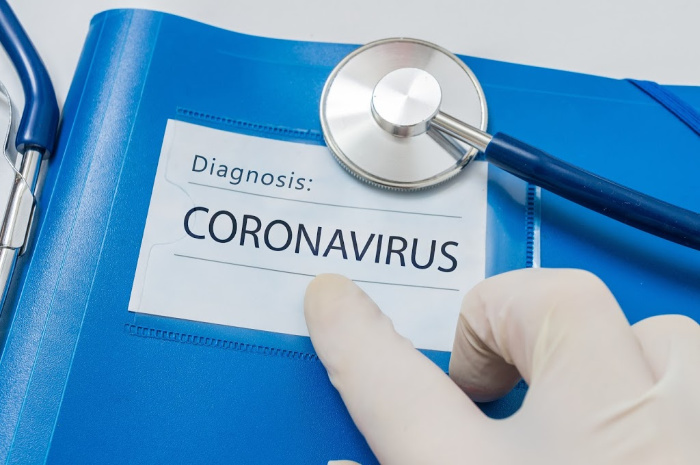

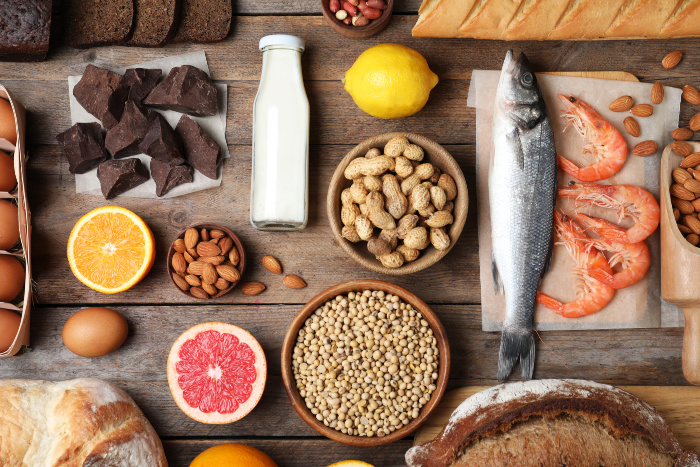
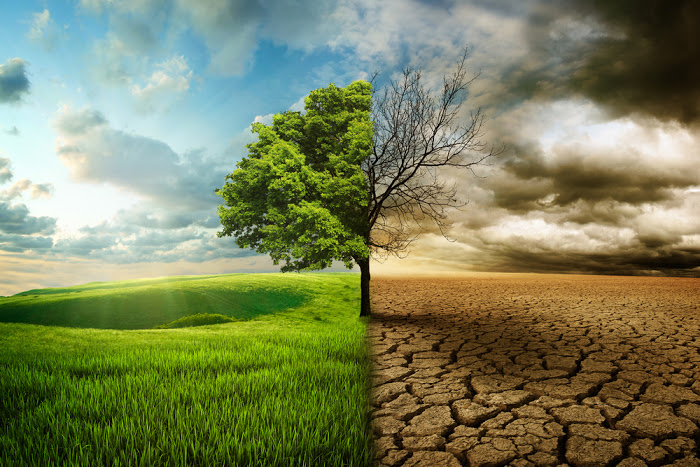
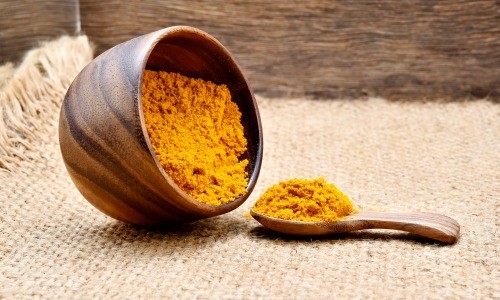


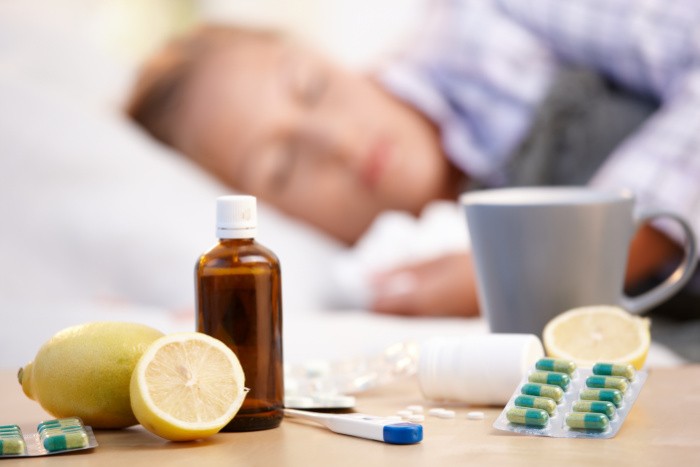
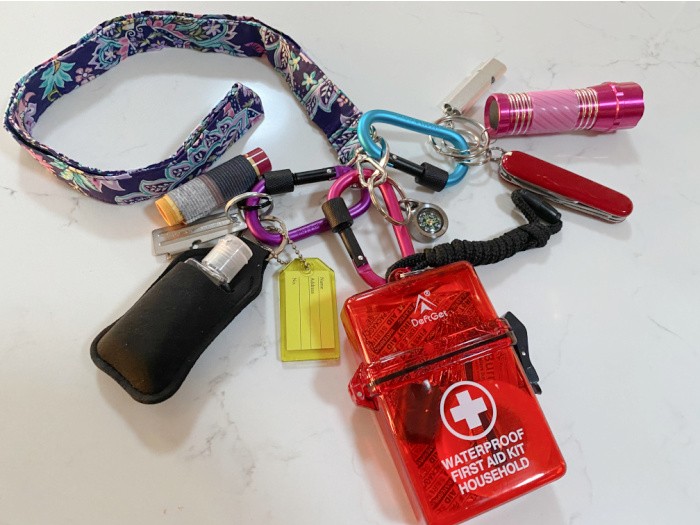












I’ve literally seen folks screaming “they’re out of water!”
Calm down. Walk over a couple of aisles take that money you were going to spend and buy a pour spout Tupperware type container then go back to sporting goods and buy an orange Sports drink 5 gl container that’s got a spigot on it. Take them home and fill them from the tap, date then and put them in the closet and rock on with life.
Now you have a reusable container for the same money that will last you years and the confidence in knowing you’ve got water.
Relax, breathe and don’t punch anyone over TP like I watched in Australia.
Hi Matt, you are so right, I’m not panicked at all. My life has not changed. Linda
Your/our world has changed(ing) in many ways…
Hi Steve, you are so right! Linda
No offense to you or your friend, but the US government and the CDC have done just about nothing right when it comes to this pandemic. How is it that among all the nations of the world we have been dead last in testing? How is it that Hong Kong, Singapore, and S. Korea have slowed the transmission rates in their countries, but we refuse to take action to do the same here? Why are we told not to wear face masks, but that’s one of the measures the Asian countries have taken and it has helped slow the spread there?
And finally, while the CDC tells is a six-foot distance is sufficient, data out of China shows that the safe distance is more like 12-14 feet.
https://www.scmp dot com/news/china/science/article/3074351/coronavirus-can-travel-twice-far-official-safe-distance-and-stay
No, people should not panic, but most need to take this a whole lot more seriously than they are. Northern Italy, which has some of the very best health care in Europe, has been reduced to triaging (rationing) treatment. Over 65? Go home. Diabetic, regardless of age? Go home. Other co-morbidities? Go home. They only have so many beds and so many personnel to treat them. That is reality. And I am not faulting Italy in the least. It is what has to happen. In a disaster, war, etc., the supplies have to be rationed to save the most possible lives. And it’s going to happen here as well.
Hi Jennifer, thanks for your comment, Linda
Linda, thank you for this article. People need to have facts first, then Think! Plan, prepare, but after Really thinking about their own family, life circumstances. For example, my family uses about 2 gals milk per week. So, I’d like to keep on hand 4-5 gals in case my area should go thru a quarantine. I always keep a box of dry milk which I would use for cooking to save back my milk. Maybe I will even grab some boxes of boxed milk at Dollar Tree (if they still have some). It is just common sense to have some extra perishables right now as well as long term items. Some people are going wild over things like TP and bottled water. Do I hope this virus wakes people up that they should Always have a plan for ‘just in case’? You bet!
Hi Wendy, I agree with you. I do hope this virus lights a fire under those who have never prepared for a job loss, or an unforeseen emergency, etc. Great comment, Linda
Do you have a suggestion for an electrolyte that doesn’t have 4 different types of sugar in it?. Thank you.
Hi Diane, I do not, maybe someone else will. Linda
Diane, I’ve never seen any without sugar. But, here’s an old school thing used by my grandparents who emigrated here, crossed the prairies and all that: add Cinnamon to water. My mother added cinnamon to us kids water when we ran high temps, had measles, mumps, flu, etc. We didn’t even know about electrolytes back then! I’m not sure why this works almost as well as Pedialyte, but it does. Helps fluids stay down too. To prevent heat exhaustion (and subsequent puking), it was common for homestead women to keep a jug of cinnamon water on hand. I would be interested to know why this works if anyone knows?
Hi Wendy, I love this tip! We all grew up with measles, mumps, chickenpox, etc. I’m going to try this one. Linda
At one point you say in the article, it is not a matter if you’ll get the virus, but WHEN! So they are saying we are all going to get it? Did I misunderstand? I just want to be clear about that statement is all! I don’t think I believe that, nor am I going to panic, like people are doing, just want clarification!
Hi Terese, let me clarify, no one knows who will get it if or when. I would not panic, I’m not worried and I’m over 60. This was just an update to help people understand to be prepared for the unexpected. Just take care of your family by being prepared for whatever ever comes your way. It may hit your city, it may not. None of us know for sure right now. Just keep prepping. That’s why my first sentence said “do not panic”, I’m not worried. Linda
So far in Washington state, we have 267 confirmed cases, 24 confirmed deaths from COVID-19. All of the people who have died (at least that are reportedly confirmed) have been elderly (60+) and/or immune-compromised. We have had some confirmed cases where they cannot or have not figured out how they were exposed. While there are no confirmed cases in the county that I live in, it is getting much closer. Our governor (and his advisors) have determined that there will be a huge growth in cases as more testing kits and techniques are developed and become available.
I have almost all of the items on your list of preps so I think that I am good to go. Some things that I would have you add to your list, however, are herbal teas that can soothe a cough/cold/throat, honey which is calming to the throat. I would also like to mention that laundry is very important now – wash your bedding in the hottest water possible, dry for extra time on the highest heat you can and put those pillows through the dryer as well. Do this more often than you normally do. Takes time, I know, but… When vacuuming, dispose of the contents asap.
I am limiting my exposure to others as well as I can. I plan to stay healthy through all of this but if that is not the case, I will know that I have done all that I can.
Stay healthy there in Utah and pray that this does not affect you and your families.
Hi Leanne, this is a crazy time right now, you are doing exactly what I’m doing. I’m prepped, I’m being cautious and washing my hands. Keeping our immune system healthy is what we should be doing all the time but right now it’s even more important. Linda
All good advice, Linda. I would add a few things to be regularly disinfected: purses; driving/winter/work gloves (in cool temps we handle a lot of things while wearing them); sets of keys: coats and jackets; steering wheels and door handles/arm rests/controls on our vehicles; all door and cabinet knobs; and anything else we use daily but don’t think consciously about using. All electronic devices should be wiped down daily. If your skin or situation can’t handle that much disinfecting, then consider wearing thin disposable gloves most of the day. You can wash and wipe your hands with them on just as if they weren’t. This would help at a workplace and when preparing meals. Anove all, unfortunately, we need to limit our personal physical exposure to others until this thing passes. A 6 foot radius is unrealistically inadequate. After reading another comment here, lack of detailed public info is probably to prevent wholesale panic akin to what is already happening around the country. Be safe, be aware, and be prepared. Panic kills in and of itself.
Hi Terry, I LOVE LOVE LOVE your comment, thank you for the good advice. Panic does not help, thank you again, Linda